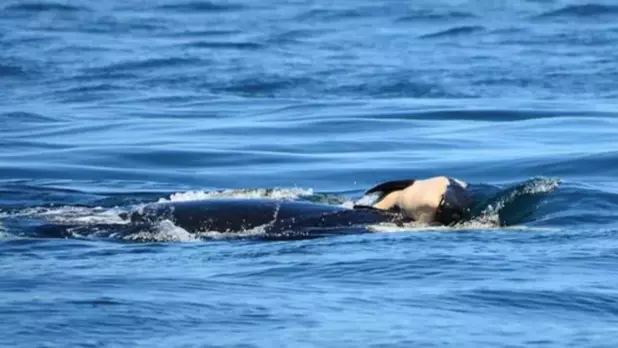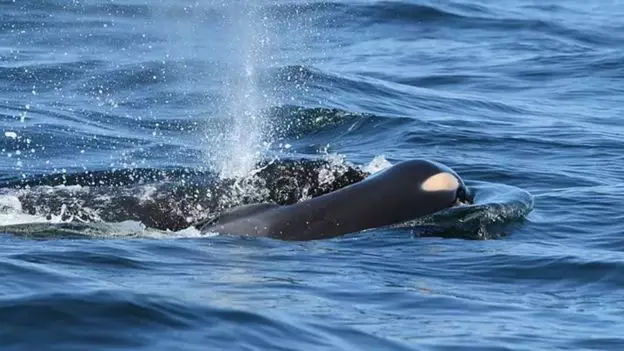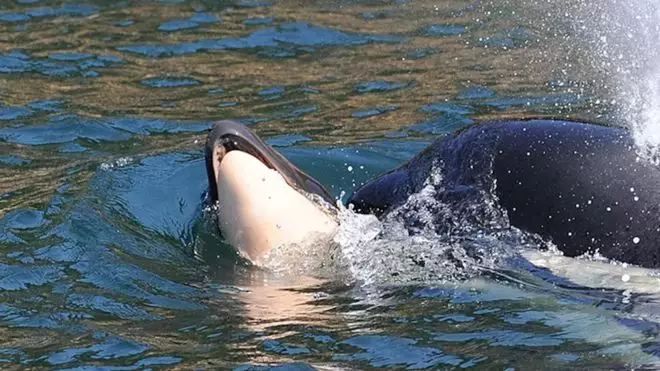
Heart-breaking photos showing a killer whale pushing her dead calf around daysafter she gave birth have been shared online.
The mother was spotted off the west coast of the US and Canada on Thursday, with experts confirming the baby had died on Tuesday; the mother refused to leave the baby behind when her pod left.

Killer whales have been previously known to carry around the carcass of their dead offspring for up to a week.
Advert
According to a statement for The Center for Whale Research: "The baby's carcass was sinking and being repeatedly retrieved by the mother, who was supporting it on her forehead and pushing it in choppy seas.
"The mother continued supporting and pushing the dead baby whale throughout the day until at least sunset."
Speaking to CNN, Ken Balcomb said: "They know the calf is dead. I think this is a grieving or a ceremonial thing done by the mother.
"She doesn't want to let go. She's probably lost two other calves since her first offspring eight years ago."

The mama whale, named as J35, by researchers was still pushing around her baby on Friday morning a spokesperson told the Guardian.
Advert
Researchers say the baby's death highlights the big issue that killer whales that rely on the Salish Sea are facing.
The Center for Whale Research has said that it's been three years since a killer whale living in the area has given birth to a baby that has survived. In the past two decades a massive 75 percent of all calves born in the area have not survived infancy.
Balcomb added: "The cause is lack of sufficient food resources in their foraging area.
"There's not enough food, and that's due to environmental reasons."
Advert
In nature, the killer whales eat salmon, which, according to Balcomb also a dwindling population due to 'human practices' - such as over-harvesting.
However, he also adds that there are 'man-made solutions to this man-made problem'.
"It's time to heed environmental protections and rebuild essential ecosystems...My advocacy is to restore some of these natural river systems to facilitate wild salmon populations again," Balcomb told the news outlet.
Advert
"If the rivers recover, the salmon recover, and then the whales will hopefully recover. We can fix this."
Featured Image Credit: Center for Whale Research